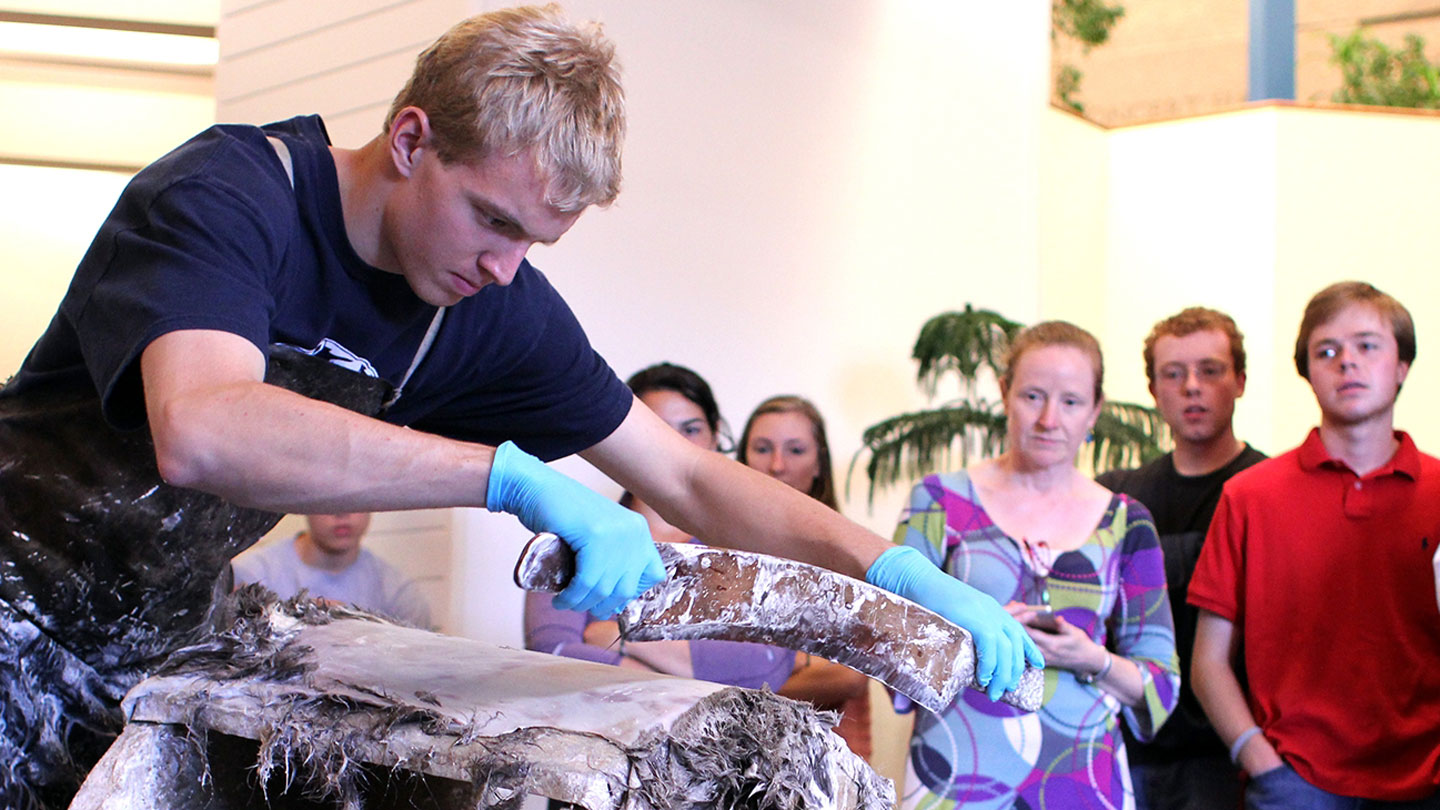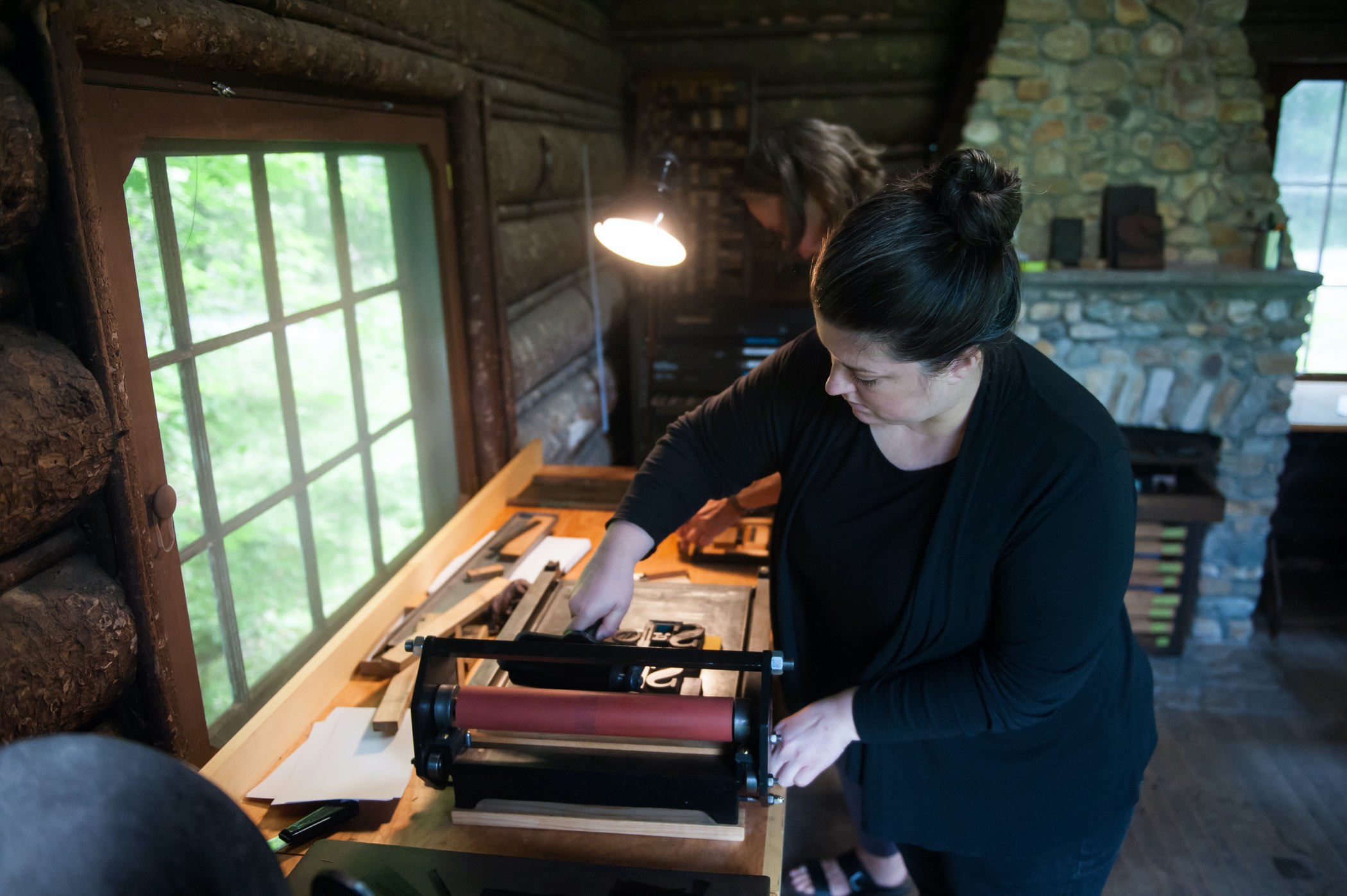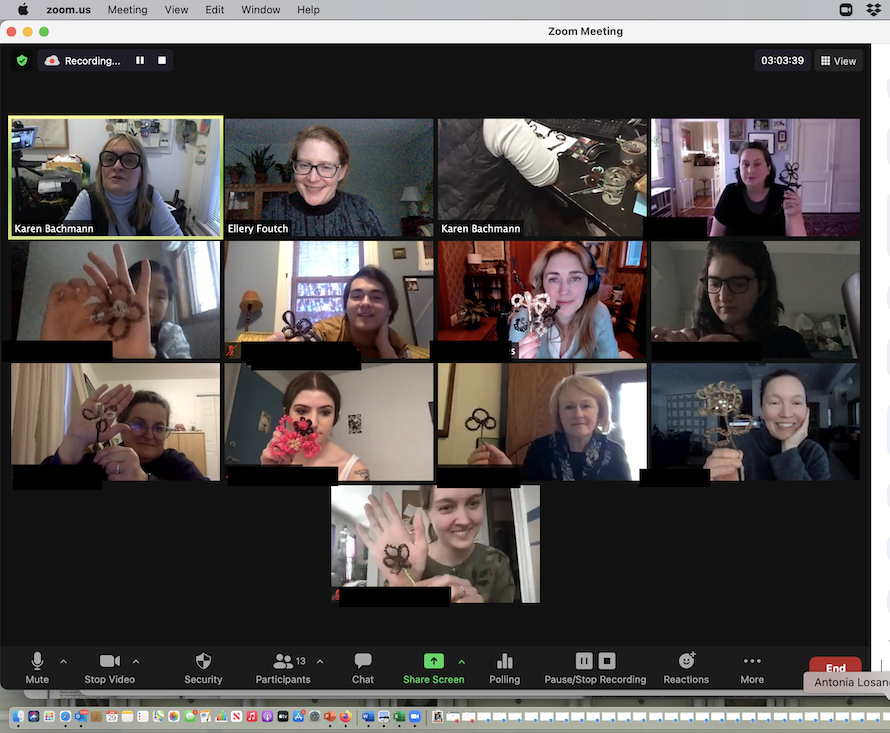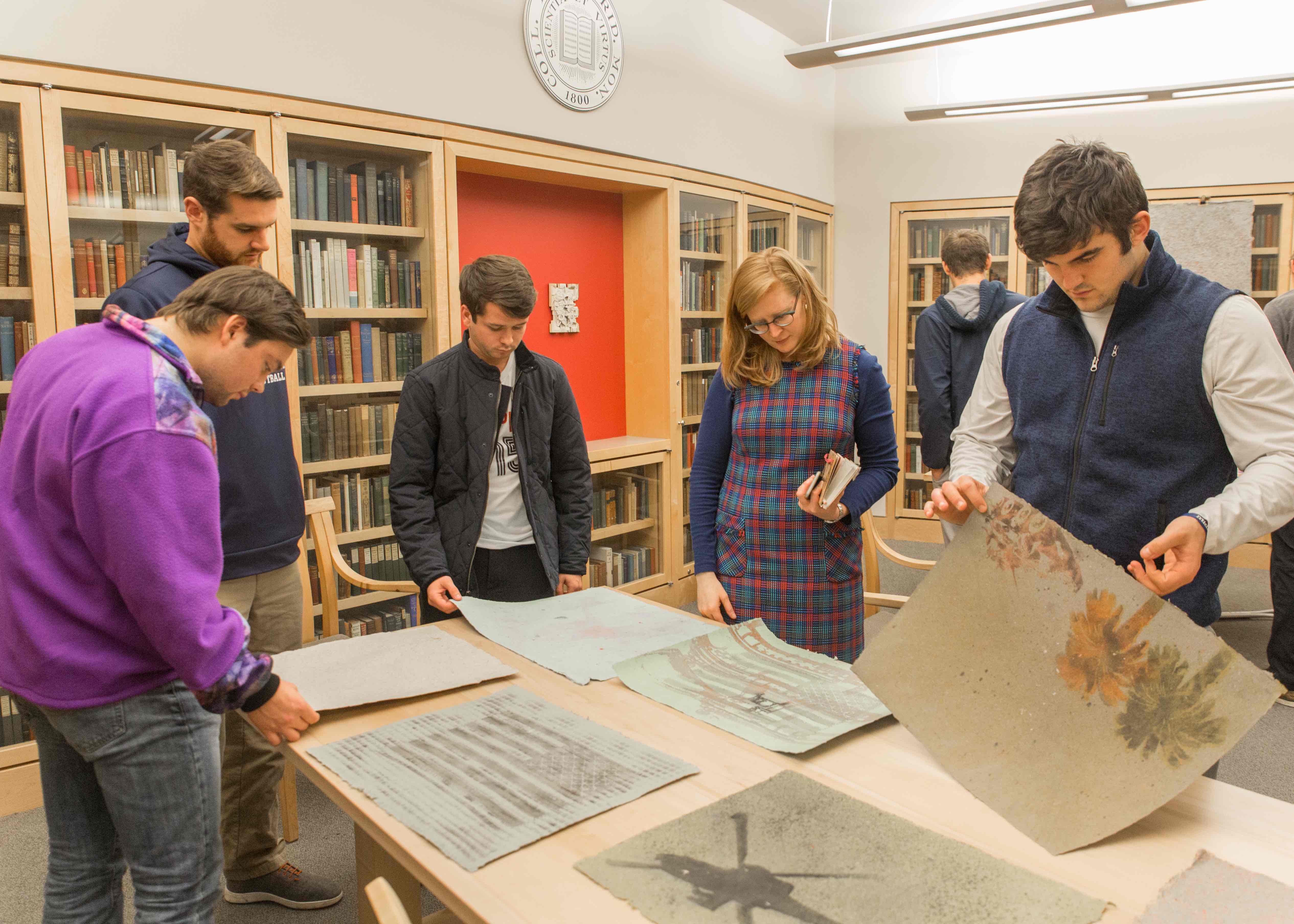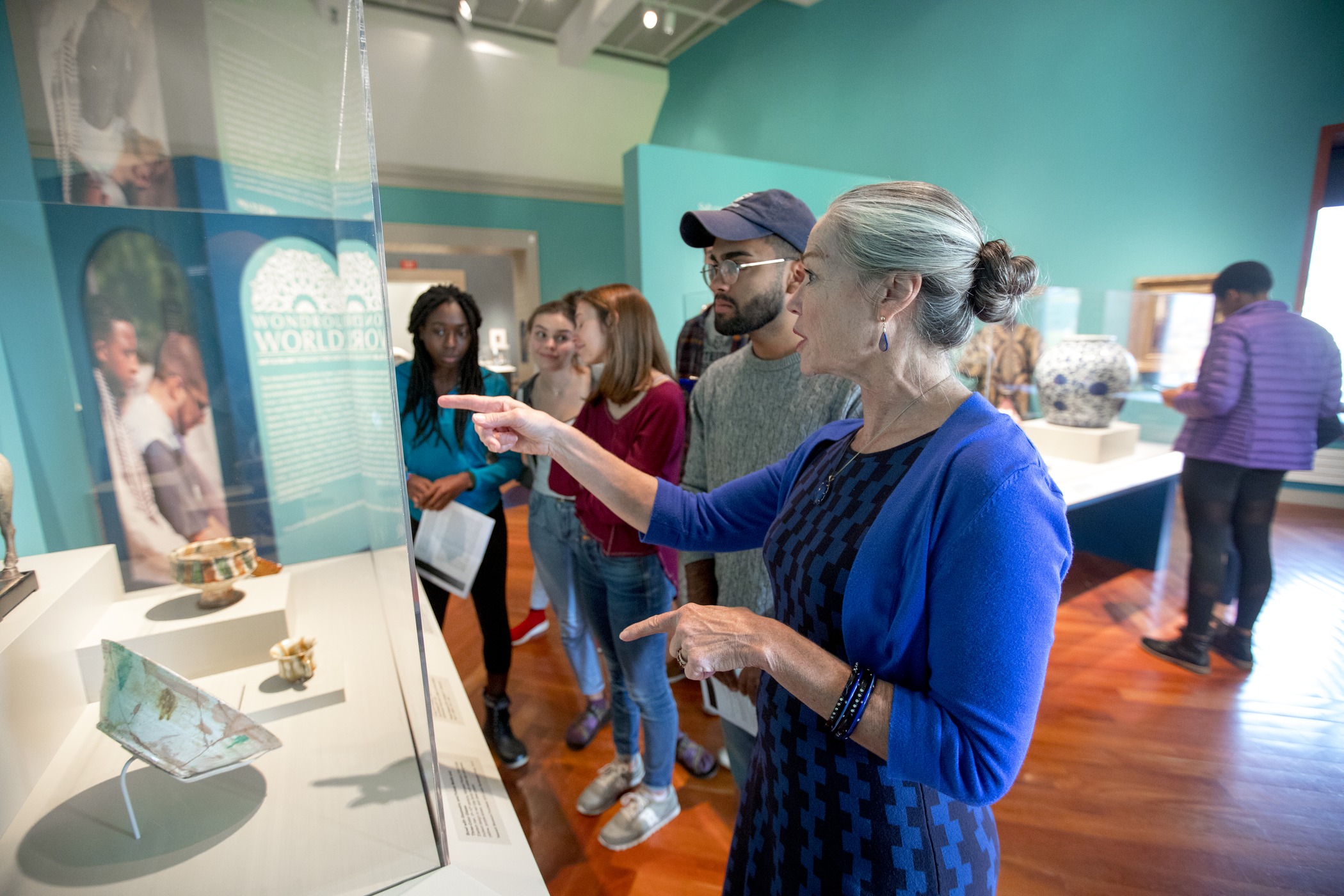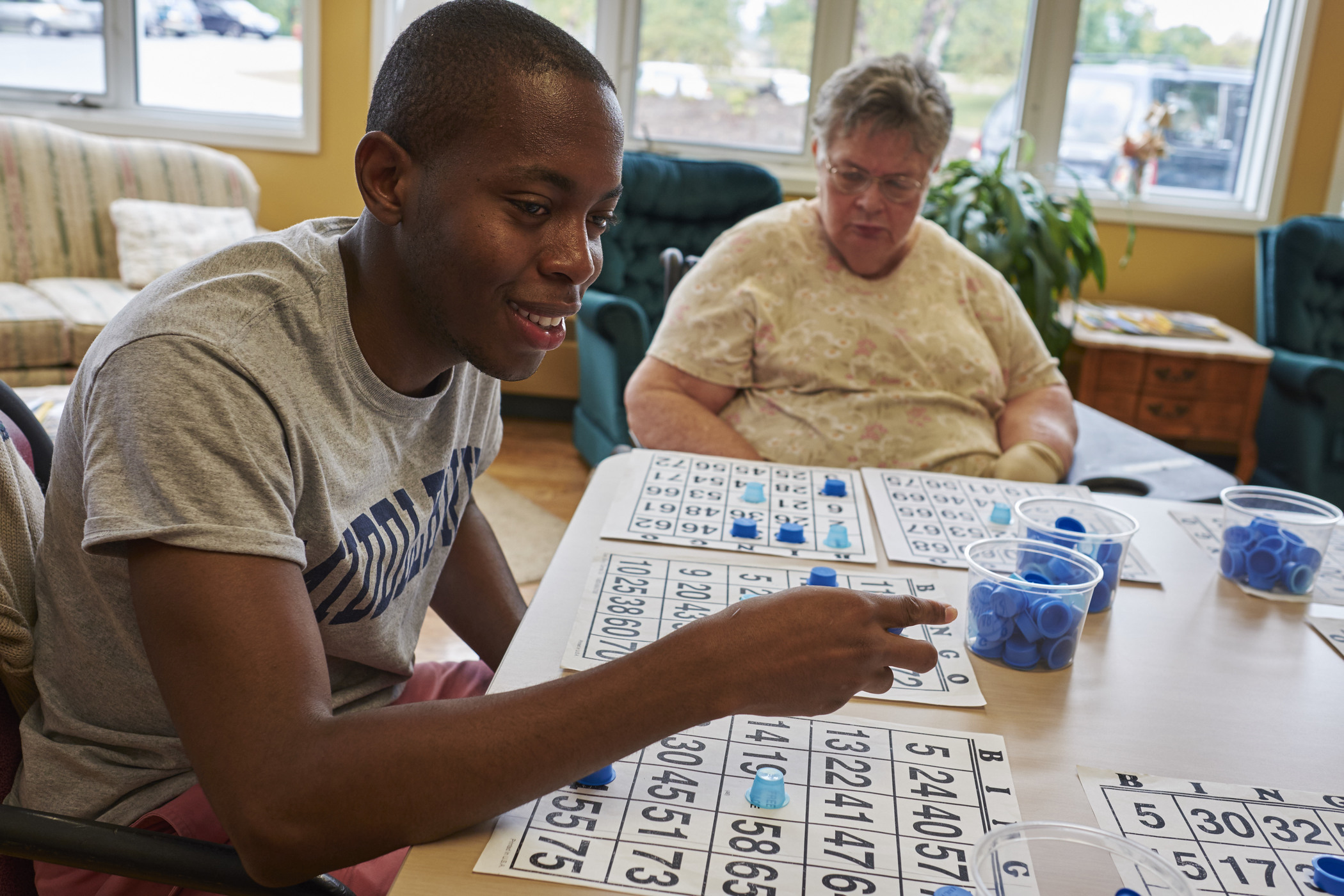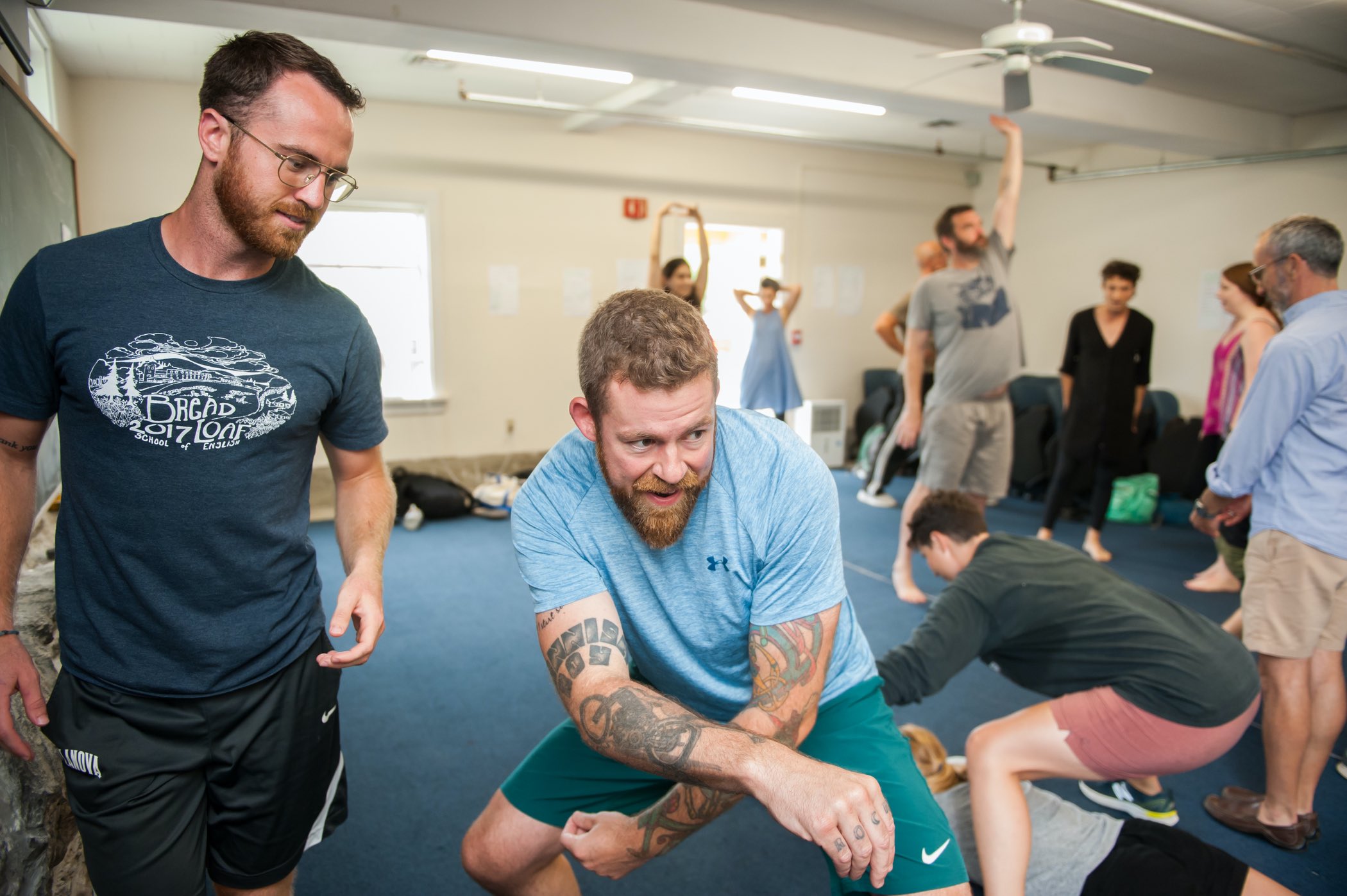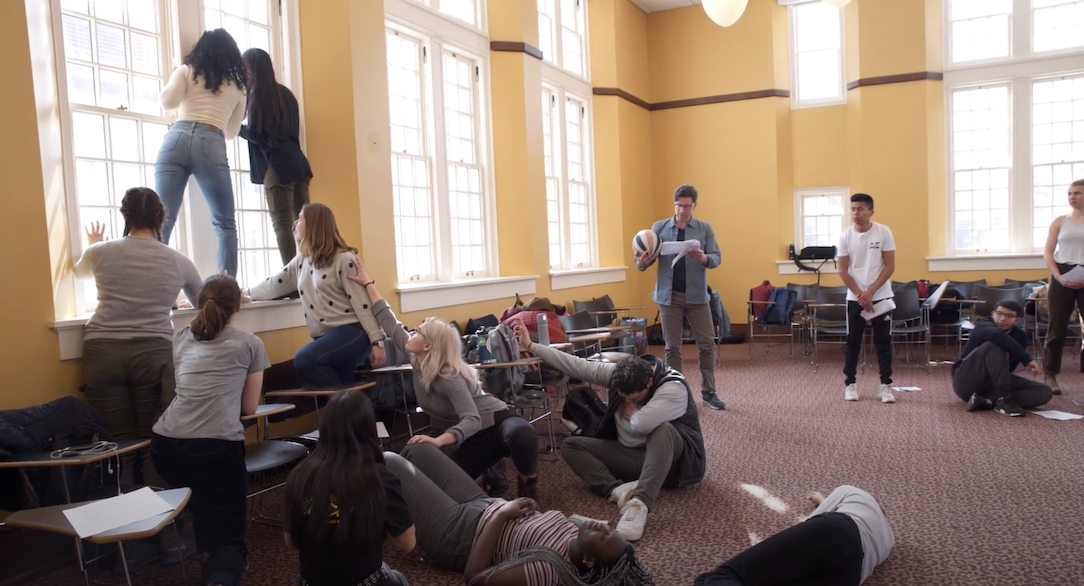Public Humanities
The Public Humanities Labs Initiative is a scholarly and pedagogical project that aims to integrate Humanities skills and expertise into public facing and/or community curated projects addressing topics of cultural, social, and intellectual importance.
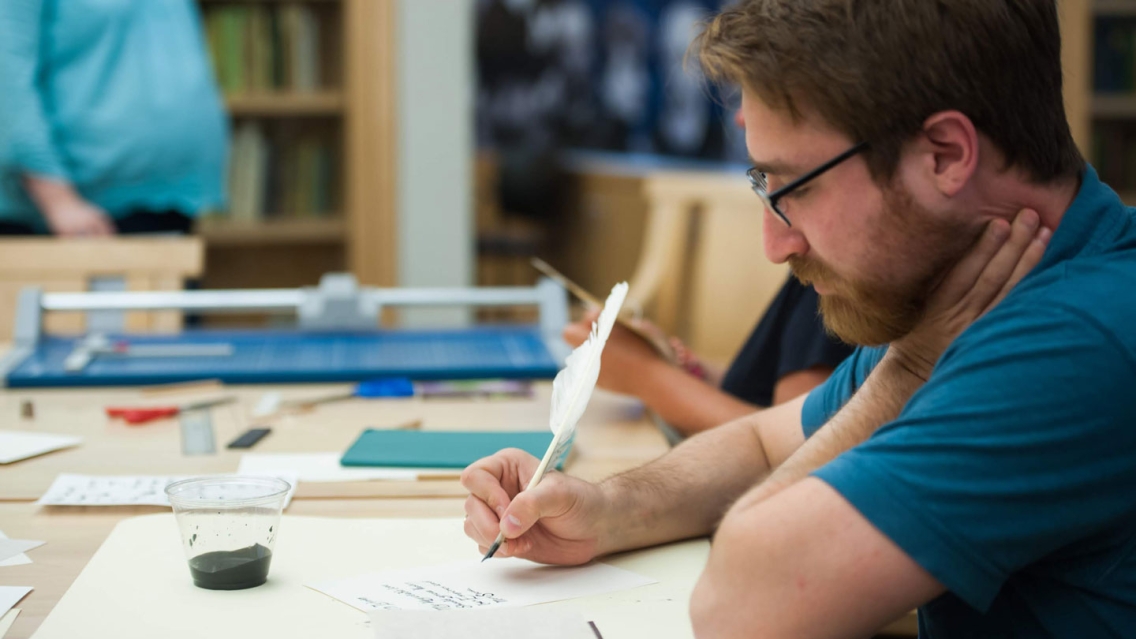
These projects may involve storytelling, oral history, historical analysis, public writing, digital humanities, ethical inquiry, medical humanities, archival work, and many other areas of knowledge.
In the News
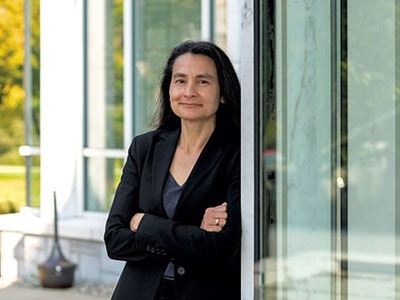
Professor of History Rebecca Bennette was featured in a September 2023 Seven Day’s article, A Middlebury College Professor Uses Graphic Novels to Breathe New Life Into the Study of History. The article highlights Bennette’s efforts to make history more accessible and relevant for today’s students—and how the general public can benefit.
About the Courses
As practitioners of public humanities, students experiment with different forms of public scholarship designed to translate their intellectual output to a broader community beyond the classroom. In doing so, they learn to combine serious intellectual rigor with commitment to civic awareness and responsibility. Some Labs classes include the opportunity to develop students’ Humanities coursework into projects co-created with community interlocutors.
Students enrolled in classes with Public Humanities Laboratory see firsthand how skills they are developing in the class can be mobilized and tested in productive new ways outside the classroom. Projects may involve any and all of the following as students engage in work of tangible importance to their own intellectual development:
- Mining Library Special Collections to create an exhibit or workshop about local history.
- Collecting oral histories about immigration to Vermont.
- Working with local museums to explore unexamined archives or create new archives.
- Learning from journalists how to craft op-eds on issues of local and national importance.
Current Courses
From 2021 to 2024, the Public Humanities Labs Initiative at Middlebury College operated with the help of a grant from the Davis Educational Foundation established by Stanton and Elisabeth Davis after Mr. Davis’s retirement as chairman of Shaw’s Supermarkets, Inc. Public Humanities Lab courses are currently supported by the Axinn Center and Presidential Funds. If you’re interested in teaching a Public Humanities Lab course, or simply learning more about this program, please contact Christopher Star. See Past Courses.
Courses offered in the past four years. Courses offered currently are as noted.
AMST 0219
Current
Upcoming
Remembering Am Rev, 1776-2026
Course Description
Remembering the American Revolution, 1776-2026
How have the people and events of 1776 been remembered? And how have artifacts, pictures, and even souvenirs shaped these stories? In this course we will analyze objects from and histories of the American Revolution, as well as the celebrations of the World’s Fairs of 1876 and 1926, the 1976 Bicentennial, and today's America250. We will explore how methods of commemoration and exhibition have shaped public memory across different historical and political contexts, attesting to different ideas about and attitudes towards American identity, gender roles, race, war and pacificism, rebellion and resistance. We will work with the collections of the Henry Sheldon Museum and invite members of the public to share objects or memories of the 1976 Bicentennial. This course is part of the Axinn Center for the Humanities’ Mellon Foundation Public Humanities Initiative.
Terms Taught
Requirements
BLST 0255
Black Experience in Games
Course Description
The Black Experience in Games and Gaming
Whether they allow the player to reenact historical events or explore alternative histories, many current board games and video games use historical settings as their backdrop. In this seminar, we will examine how Black experiences are represented in these games. How do games depict and interact with African American history, colonialism, and histories of the Black diaspora? How are these histories gamified, what can games teach about these histories, and how do we as players experience these interactive narratives? After familiarizing ourselves with the historical settings and events through academic readings, we will play and analyze a variety of board games and video games that engage with Black histories. While the focus of the class is the representation of these histories in games, we will also examine the experiences of Black gamers and Black game developers in gaming communities and the gaming industry. 3 hrs. seminar/2 hrs. lab. This course is part of the Public Humanities Labs Initiative administered by the Axinn Center for the Humanities.
Terms Taught
Requirements
BLST 0414
Blacklisted
Course Description
Blacklisted: Surveillance, Race, and Gender
The fields of Black studies, feminist geographies, and surveillance studies are brought together in this course to examine transformations in geographic and social control in U.S. and transnational contexts. The ways in which racialized and gendered populations have experienced and continue to experience geopolitical domination and surveillance constitutes the central theme of the course. Students will develop collaborative and independent research skills. Topics of inquiry include: the trans-Atlantic slave trade; prisons and policing; education; (anti-)surveillance technologies; airports and borders. We may draw substantially from texts such as Simone Browne’s Dark Matters: On the Surveillance of Blackness and Toby Beauchamp’s Going Stealth: Transgender Politics and U.S. Surveillance Practices. (Open to sophomores, juniors, and seniors) 3 hrs. sem. (FemSTHM) /This course is part of the Axinn Center for the Humanities’ Mellon Foundation Public Humanities Initiative./
Terms Taught
Requirements
ENGL 0268
Current
Upcoming
Literature of Displacement
Course Description
Literature of Displacement: Forced Migration, Diaspora, Exile
In this course we will study postcolonial literature about migration, displacement, exile, and diaspora. Spurred variously by force, necessity and desire, migrants leave their homes and homelands with regret and with hope. Writers address the historical forces that propel these migrations: decolonization and neo-colonialism, globalization, warfare, dispossession, political violence, religious conflict, and environmental catastrophe. They experiment with narrative form and poetic language to explore the experiences of undocumented immigrant workers, exiles, refugees and well-to-do migrants. We will examine how displacement shapes constructions of identity, history, community and place in texts by writers such as Anzaldua, Ali, Darwish, Diome, Patel, Gomez Pena, Said, Rushdie, and others. 3 hrs. sem. (Diversity) (Rec) Please note that, if circumstances require, this course may occasionally be taught remotely. (formerly ENAM 0268) This course is part of the Axinn Center for the Humanities’ Mellon Foundation Public Humanities Initiative.
Terms Taught
Requirements
HARC 0368
Rise and Fall of Detroit
Course Description
The Rise and Fall of Detroit: Urban Histories and Architectural Fragments
In this class, we will investigate the rich and complicated built environment of Detroit. By looking at both visual evidence and textual sources we will uncover how the city was transformed from its roots as a trading outpost into an industrial powerhouse and “arsenal of democracy,” and then became synonymous with urban “blight,” racial animus, and ruin tourism. We will orient ourselves to the different neighborhoods of Metro Detroit, diving into the past as we examine the buildings, monuments, and landmarks—both existing and destroyed—that constitute the city. Together, we will create a map of the city, which we will add to and adulterate through the term. This shared work will help serve as the basis for informal discussions and presentations throughout the term. By the conclusion of this course, you will be comfortable “reading” buildings and spaces and will be able to navigate both the physical city of Detroit and the many layers of (contentious) history buried within. An interdisciplinary endeavor, this course draws on writings by architectural historians, landscape historians, art historians, anthropologists, geographers, urban historians, scholars from ethnic studies and cultural studies, among many others. This course is part of the Axinn Center for the Humanities’ Mellon Foundation Public Humanities Initiative.
Terms Taught
Requirements
HIST 0352
Current
Upcoming
Food History in Middle East
Course Description
Food in the Middle East: History, Culture, and Identity
In this course we will examine the rich culinary history of the Middle East from the time of major Islamic Empires, such as the Abbasids and Ottomans, until the modern period. Using an array of primary and secondary sources, we will explore the social, religious, literary, and economic place of food in the region. We will study the consumption of and attitudes toward specific foodstuffs, gauging the relevance of items like spices and coffee in the pre-modern period and of various dishes within modern nationalist constructions. We will also investigate how Middle Eastern peoples from different ethnic, geographic, and religious backgrounds have historically used food to express their distinct cultural, national, and gendered identities.(Counts for HSMT credit) 3 hrs. lect./disc. This course is part of the Axinn Center for the Humanities’ Public Humanities Lab Initiative.
Terms Taught
Requirements
JWST 0202
Upcoming
Jewish Midd: Histories
Course Description
Jewish Midd: Histories of Jews and Judaism in Middlebury and Beyond
In this course, we will explore the social and cultural history of Jews and Judaism at Middlebury College and Vermont through two interconnected frameworks. The first framework employs the college's archives to analyze Middlebury as a case study of Jews in American higher education. We will review admission records and faculty minutes to outline institutional policies concerning Jewish students and faculty and explore the representation of Jews and Judaism in the curriculum and campus life. To provide a longitudinal perspective on contemporary issues, we will revisit campus debates concerning Israel/Palestine and antisemitism and examine their impact on inter-communal relations. The second framework centers on local history to study Vermont's Jewish communities, rural Jewish life, and movements such as the back-to-the-land movement, including visits to local archives and historical sites. This course is part of the Special Collections Collaborative Public Humanities Labs Initiative supported by the Axinn Center for the Humanities and Special Collections.
Terms Taught
Requirements
WRPR 1046
Upcoming
Acting Your Age: Adulthood
Course Description
Acting Your Age: Meanings of Adulthood
In this course we will take up the question of “what is adulting”? Is it something one becomes or is? Or something one does? Why is it part of a global conversation about changing economic and social conditions? And how does that impact you? To explore these questions, we will read articles by social scientists and discuss essays and poems by writers such as Audre Lorde, Tina Fey, Sandra Cisneros and Warsan Shire. We will visit archives to look for traces of adulting in former Middlebury students and engage in storytelling with children and elders at community sites. The course will culminate in a student-led, public facing creative installation on adulting.
Terms Taught
Requirements










